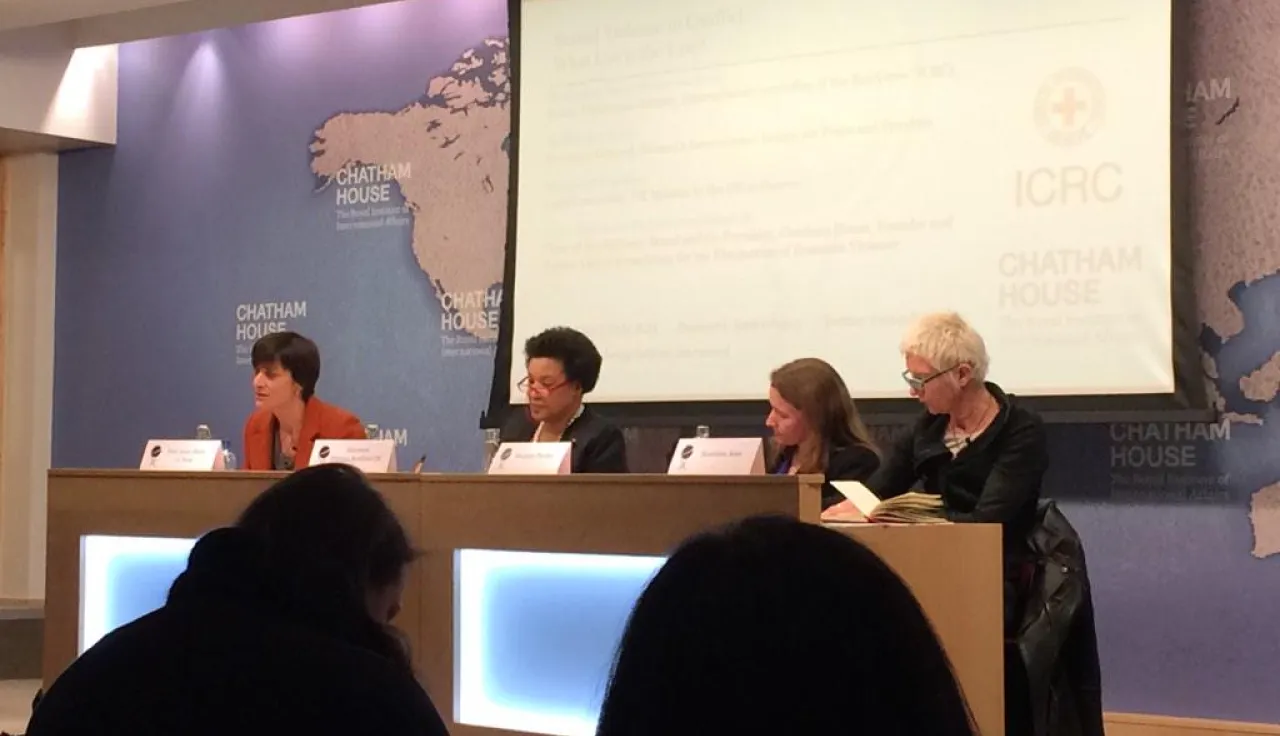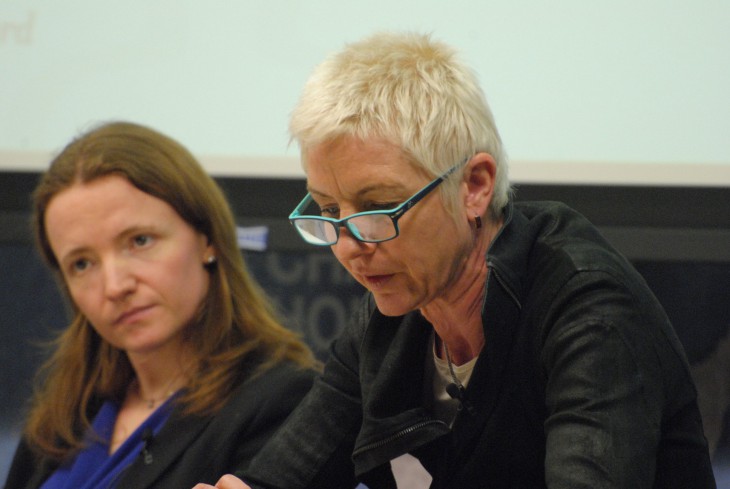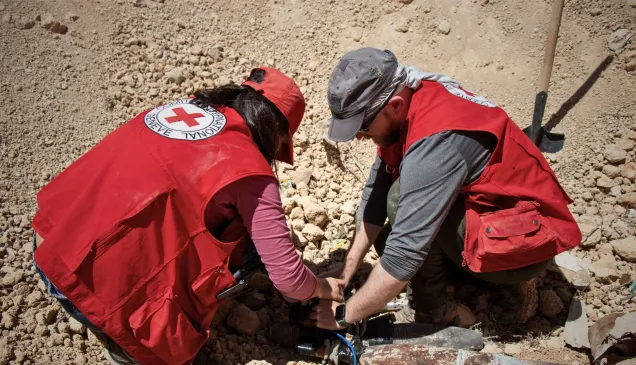United Kindgom: Humanitarian law vital in responding to sexual violence

The law provides an essential framework to ensure that the rights of victims of sexual violence are upheld as well as preventing its occurrence in the first place. This was the conclusion of a panel of experts, including Professor Anne-Marie La Rosa, senior diplomatic adviser for the ICRC, who met at Chatham House in London on Friday 23 January.
Some 60 government officials, NGO representatives and academics gathered for the discussion which sought to explore the relevance of the law to a complex humanitarian problem endemic to armed conflict and other situations of violence - sexual violence.
Watch the video of the event on Chatham House's website: Sexual violence in conflict - what use is the law?
International humanitarian law, human rights law and criminal law should ensure that populations at risk of sexual violence are protected, and those who have fallen victim to this horrific crime have access to remedy, including justice. But the law alone does not supplant the need for practical assistance, in the short and long term, for victims. Indeed the link between the practical needs and legal rights of victims lies in the responsibility of the governing state or authority to provide both to survivors. This was the main argument of Professor Anne-Marie La Rosa, who continued that the letter of the law must be effectively incorporated in national legislation. In addition, she said that when it comes to sexual violence in conflict, a community-based approach is vital to build the trust required to be able to both respond to and prevent sexual violence.

Madeleine Rees, right and Margaret Purdsay, left. Photo: Chatham House, London.
Madeleine Rees, Secretary General of the Women's International League for Peace and Freedom, spoke of the connection between sexual violence in conflict and violence against both women and men in times of unrest and peace. This similarity can be seen in both the ability of power to become corrupted in its relationship with ordinary people, and the poor access to justice for victims of rape and other sexual violence at any time and in any country around the world. Access to justice for victims not just on paper, but in reality, she said, is absolute, recalling her experience in the Balkans after the conflict where stigmatization prevented survivors of this crime from seeking help.
Margaret Purdsay, Legal Counsellor from the UK Mission to Geneva also mentioned the legal role of protocols, declarations and the development of global norms as a result of work such as the UK's Preventing Sexual Violence Initiative. Whilst they do not qualify as 'hard law', they do indicate that States understand and accept the nature of these crimes and their responsibilities as a result - this can be helpful in particular when interpreting international law in courts and ensuring victims get the support they need.
A final word was given by Baroness Scotland, Chair of the Advisory board and Co-President of Chatham House, as well as the founder and patron of the Global Foundation for the Elimination of Domestic Violence, who moderated the discussion. It is vital, she said, that a light is shone on hidden violence wherever it might be: in conflict, against women or men, and in the home, across the world.
Main photo credit: Chatham House, London.



